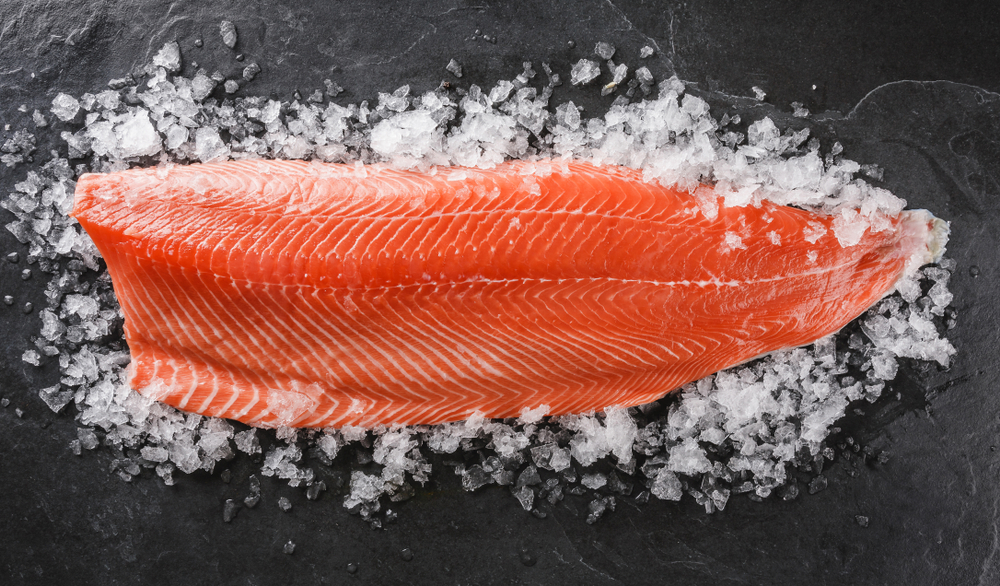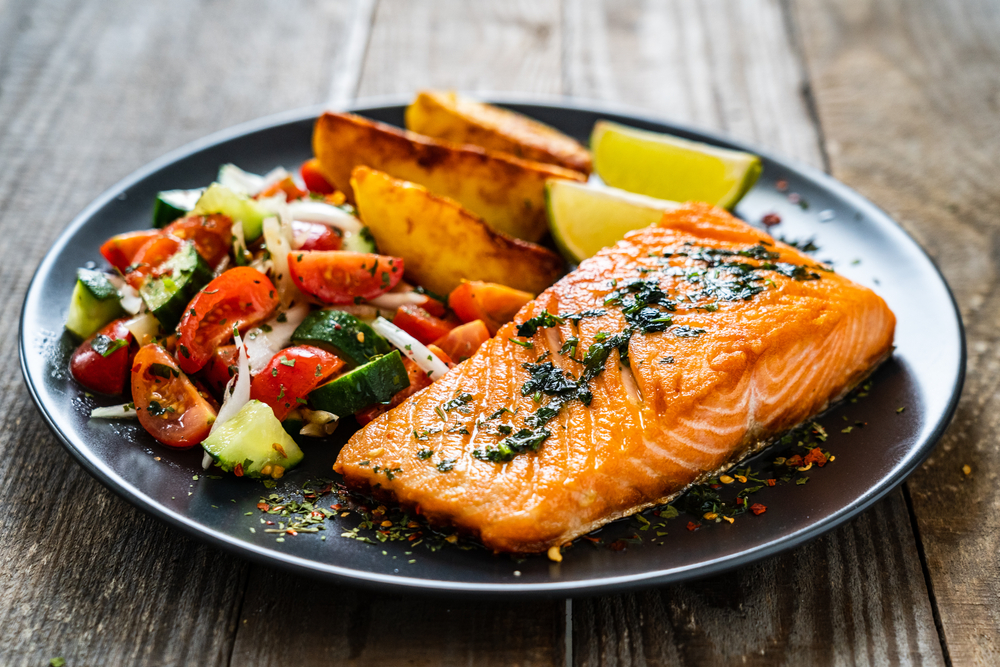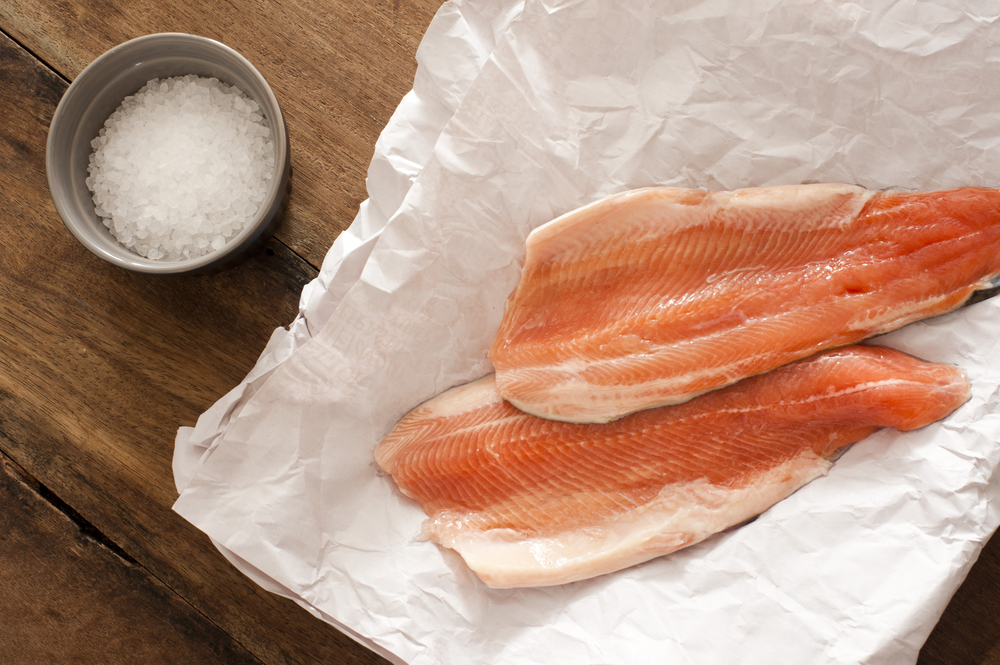Eating freshwater fish like trout and salmon is an excellent way to take advantage of the nutritional benefits they offer. Not only are freshwater fish a good source of protein, but they also contain other essential vitamins and minerals that can help keep you healthy. Adding freshwater fish to your diet can be a great way to get all the essential nutrients your body needs. But which is healthier, trout or salmon? Let’s compare these two fish to find out more.

Health Benefits from Eating Trout
Eating trout can provide a number of health benefits. They include providing key vitamins and minerals, promoting weight loss, improving cognitive function, and strengthening the heart.
Trout is an excellent source of protein, which helps to build and maintain muscle mass. It’s also high in omega-3 fatty acids, B vitamins, selenium, magnesium and phosphorus. These nutrients are essential for healthy growth and development.
Eating trout can help promote weight loss due to its low calorie content and high protein levels. Protein takes longer to digest than carbohydrates, so feeling satiated for longer will help reduce cravings throughout the day.
Consuming trout may also improve cognitive function. Omega-3 fatty acids are important for brain health as they help to protect neurons in the brain from damage. Additionally, studies have shown that omega-3 fatty acids help improve memory and reduce symptoms of depression or anxiety.
Trout is also rich in selenium which is good for heart health as it can reduce inflammation and lower bad cholesterol levels. Studies have shown that people who eat more fish tend to have a healthier heart than those who don’t consume fish regularly.
Overall, eating trout has numerous health benefits! Trout provides key vitamins and minerals, promoting weight loss, improving cognitive function, and strengthening the heart.

The Health Benefits from Eating Salmon
Eating salmon is one of the healthiest foods you can add to your diet! Salmon is a great source of protein, healthy omega-3 fatty acids, and vitamins and minerals. Salmon is known for its ability to provide numerous health benefits such as reducing inflammation, promoting heart health and aiding weight loss.
Eating salmon provides a range of essential vitamins and minerals, including B vitamins and selenium. B vitamins are important for cellular energy production. While selenium helps to reduce oxidative stress from free radicals in the body.
One of the key components in salmon is its healthy omega-3 fatty acids which are known for their anti-inflammatory properties. Studies have shown that these fats help to reduce inflammation throughout the body, improving conditions such as arthritis or asthma.
Eating salmon may also benefit heart health due to its high concentration of omega-3 fatty acids. These fats have been linked with reducing high blood pressure, increasing good cholesterol levels (HDL) and decreasing bad cholesterol levels (LDL). Eating fish may help reduce the risk of developing coronary artery disease or stroke.
Additionally, consuming salmon can help promote weight loss due to its low calorie and carbohydrate content while still providing essential vitamins and minerals. An added bonus is that protein takes longer to digest than carbs so you’ll feel fuller for longer after eating it compared to other sources of protein such as chicken or beef.
Overall, eating salmon has numerous health benefits. Such as reducing inflammation, promoting heart health, aiding weight loss and providing essential vitamins and minerals necessary for optimal bodily functioning.

Is Trout or Salmon Healthier?:
A Comparison of the Macronutrient Breakdown
Macronutrients are nutrients that are required in large amounts in the human diet. They include carbohydrates, proteins, fats and oils. Carbohydrates provide energy for the body and can be found in a variety of foods such as fruits, vegetables, grains, plasma and legumes. Proteins are needed to build and maintain body tissues and are typically found in animal products, legumes or nuts. Fats and oils provide energy for the body but also support important functions such as digestion and absorption of vitamins.
So is trout or salmon healthier as far a macronutrient density goes? The macronutrient breakdown for trout and salmon is quite similar. The nutrient content of both fish is a good source of protein, with trout providing 19g per 100g and salmon providing 20g per 100g. Additionally, both are excellent sources of omega-3 fatty acids with trout providing 1.2g per 100g and salmon providing 1.5g per 100g.
The difference in carbohydrate content between the two is also minimal, with both having negligible amounts ranging from 0–0.1 grams per 100g served. Trout has slightly more fat than salmon, but this amount is still low with only 2.9 grams of fat in trout compared to 1.7 in Salmon per 100 grams served.
Overall, the macronutrient breakdown for both trout and salmon provides an excellent source of lean protein that is low in carbohydrates and fat. This means that consuming either fish can provide numerous health benefits due to its high nutrient content while avoiding excessive calorie intake from excess carbohydrates or fats.
In conclusion
So what is the answer to our original question, is trout or salmon healthier? Both trout and salmon are excellent sources of lean protein with minimal carbohydrate content. Both fish provide a good source of omega-3 fatty acids which can be beneficial to health in many ways. Although there is some variation between the macronutrient profiles of trout and salmon, they are still similar enough that either one could make an excellent addition to any diet without excessive calorie intake from carbohydrates or fats. With these facts considered, it’s no wonder why so many people enjoy adding these fish into their meal plans!





